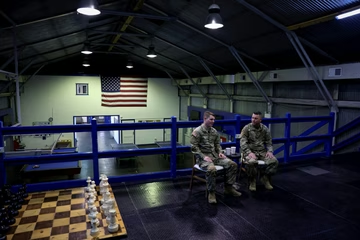
No crime was committed in connection with the courtroom suicide of convicted war criminal Slobodan Praljak, the Netherlands Prosecutor’s Office said on Friday after concluding the investigation.
After Praljak heard the final ruling on an appeal against his conviction for crimes against humanity on November 29, 2017, he stood up, told the court he does not accept the ruling and drank a poisonous liquid from a small bottle. He was pronounced dead several hours later in the Westeinde hospital.
Praljak and five other top officials of the wartime unrecognised Bosnian Croat statelet of Herzeg Bosna (HB) received lengthy prison sentences in 2013 for leading what the Court defined as a criminal joint enterprise to commit ethnic cleansing on parts of Bosnia with the goal of annexing HB to neighbouring Croatia.
The ICTY said that the judgment confirmed the conflict in Bosnia was an international one, as “Croatia exercised overall control over the HVO, which committed widespread crimes as proven in this case.” The court thus said that the then-leadership of Croatia, “including President Franjo Tuđman, Defence Minister Gojko Šušak, and Janko Bobetko, a senior General in the Croatian Army” shared the criminal purpose “to ethnically cleanse Bosnian Muslims and contributed to realizing that goal.”
Praljak, who was a top Croat Defense Council (HVO) official when the crime was committed between 1992 and 1994, was sentenced to 20 years behind bars. On the same day when he took his life, the ICTY asked the Netherlands Prosecutor’s Office to investigate what happened.
Initially, suspicions arose that two criminal acts might have been committed. The first regarding the very substance that Praljak used. This was was later determined to be potassium cyanide and, according to prosecutors, while the substance is not easily acquired, possessing it does not constitute a criminal act in itself under Dutch law.
The other crime refers to suspicions that someone might have helped the convicted war criminal obtain the poison. Investigators reviewed security camera footage and questioned numerous witnesses who were present in the courtroom and in the rooms where Praljak stayed before the ruling. No clues on how he managed to bring the bottle into the courtroom were found.
The security camera footages from the courtroom and the ICTY did not show him having any bottle or any other similar object, neither did they show anyone handing him one. Nothing unusual was found during the search of the premises and the security camera footage did not reveal where he pulled the bottle from.
Before the trial, Praljak spent a short time alone in the bathroom and in the waiting room, none of which were covered by cameras.
Searches of those areas have not produced any findings, prosecutors said.
Based on witness testimonies, investigators concluded that Praljak planned his suicide for a while. He had asked for his personal belongings to be packed up and sent to Croatia.
Praljak also left a letter addressed to his family, where he explained that he earlier made the decision to take his life in case he is pronounced guilty.
Praljak could have been in possession of the poison for a long time, as the substance can be dried and stored, and very small amounts of it are deadly.
Kakvo je tvoje mišljenje o ovome?
Učestvuj u diskusiji ili pročitaj komentare





 Srbija
Srbija
 Hrvatska
Hrvatska
 Slovenija
Slovenija



























































